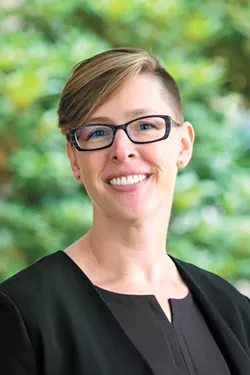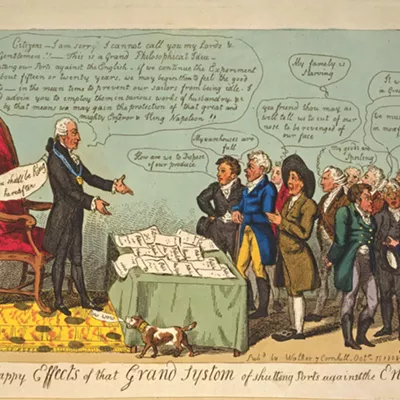In my 21 years of teaching, I’ve learned alongside many different students. But no matter what their differences in background, gender, culture, or learning style, one thing I know for sure about teenagers is how much they want and need comprehensive sex education.
Early in my career I taught in Texas, where they focused on abstinence-only, confirming for me the detrimental impact of this approach. Teaching abstinence (also called “Sexual Risk Avoidance”), and only emphasizing the failure rates of contraception, led to a tremendously high teen unintended pregnancy rate in the panhandle of Texas.

I’m still surrounded by teenagers — students and my own kids. I also remember being a teenager myself. The fact is they will experiment, they will have these feelings, emotions, and questions. This is not something we can control. What we can control is how well we equip them with the knowledge and facts to identify and manage feelings, to understand human development, how to give and receive consent, and to speak up as a bystander if they witness abusive behavior.
We need to make sure our youth have what it takes to make good decisions. One way that is proven to work is to provide them with accurate, age-appropriate, health and sex education. Students deserve to have a safe forum to get the information and tools they need to build healthy relationships, avoid unintended pregnancy and sexually transmitted disease, and to prevent themselves from being perpetrators or victims of sexual abuse.
I’ve also had students across the spectrum of the LGBTQ community. Having an LGBTQ plus inclusive approach to sex education is affirming while kids are discovering who they are. So much trauma and mental health is connected to sex and sexuality. It’s not an exaggeration to say that the social and emotional learning curricula that go hand in hand with age-appropriate sex education can be a self-harm and suicide prevention strategy.
Despite the fact that we’ve had comprehensive sex education guidelines for Washington schools for more than 15 years, only 60 percent of schools were providing curriculum to their students, leaving thousands of kids in the dark. To address this gap, the Washington Legislature upgraded guidelines to ensure all students, no matter what zip code they live in, can access information and tools to keep them safe and healthy. But this past spring — at the height of the COVID-19 outbreak when we were supposed to stay home and stay safe — opponents of sex education collected enough signatures to put the measure on the ballot to be approved or rejected by voters.
I’m super excited to vote, yes, to Approve Referendum 90 — to approve sex education that is critical to ensuring our youth grow up healthy and safe. As a parent of two teenagers and an 8-year-old, I am particularly excited that everything we teach at home will be reinforced at school.
Our society is dependent on us caring about, and coexisting with others. Affirming identities, and bringing the concept of consent front and center, will benefit all youth, and society at large. I do know from my own research that states that require sex education had lower rates of teen pregnancy, sexually transmitted disease and child sexual abuse. And don’t we all want that outcome?
What a world we could live in if our young people learned about human development, about consent, about what it means to be LGBTQ+, from an honest non-judgemental educator, instead of from the internet, their peers in the hallway and slang language. We can prevent students from experiencing sexual abuse and unhealthy relationships by giving them the tools and the language to identify and report inappropriate behavior.
We need to give our students social emotional learning tools to better understand each other, to not be a bully, to not engage in harassment, and to learn to respect each other. We educators have the experience and expertise to empower our students with these life skills. Many of us are also parents ourselves, and I think it’s safe to say we have what’s best for our students in mind.
A 21-year veteran educator, and parent of three, Mandy Manning was honored as 2018 National Teacher of the Year.















